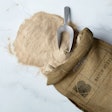
Pet food ingredients can influence the gut health of dogs and cats. During Petfood Forum China 2019, Virgil Meallet, DVM, Asia technical director for Olmix Group, shared advice on how to formulate pet food to protect and boost the digestive system, including the following five topics.
1. Hypoallergenic diets for identifying pet gut problems
Hypoallergenic diets become particularly beneficial when used as elimination diets for pets with gut health problems, according to Meallet. With these hypoallergenic pet food formulations, veterinarians and owners can diagnosis and manage food hypersensitivity in dogs and cats.
When to consider a hypoallergenic pet food:
- when a pet appears to be allergic to multiple ingredients
- when an otherwise complicated dietary history makes it difficult to identify a novel protein
- when a patient has severe IBD
2. Fiber types in digestive health pet foods
Soluble fibers may help reduce symptoms of some gastrointestinal diseases. In general, Meallet advocates the use soluble, or fermentable, fiber in preference to insoluble, non-fermentable fiber.
3. Beta-glucans in dog food ingredients
Beta-glucans are water-soluble plant fibers made up of chains of up to 2,000 units of the simple sugar glucose.
Among pet food ingredients, corn, rice, barley, wheat and oat contain beta-glucans, as does baker's yeast. Purified bet-glucans from yeast or oyster mushrooms enhanced immune responses in dogs in experiments, according to Meallet.
4. Fat and vitamin considerations in pet gut health
Too much fat in the diet can delay gastric emptying in dogs, according to Meallet. High-fat dog foods may contribute to diarrhea. Pet food formulators need to pay close attention to vitamin levels in gut health diets. Gastrointestinal diseases can cause the loss of water-soluble vitamins in diarrhea. Similarly, fat-soluble vitamins can be lost in overly fatty feces, a condition known as steatorrhea. For example, researchers have documented magnesium deficiency in Yorkshire Terriers with severe inflammatory bowel disease and lymphangiectasia.
5. Probiotics for pet food from marine algae
Probiotics may help dogs and cats with inflammatory bowel disease and should be studied further, according to Meallet.
His company, Olmix produces two formulations from marine algae meant to boost or protect pets’ immunity and gut health. One, MSP Barrier is extracted from red algae (Solieria chordalis) and is intended to act on the digestive system. The other, MSP Immunity comes from green algae (Ulva sp.) and is meant to activate membrane receptors, stimulate immune mediator synthesis and activate immune cells.
About Petfood Forum China
Petfood Forum China is the only event of its kind for the dynamic Chinese pet food manufacturing and marketing industry. This exclusive one-day conference will feature important information on market trends and innovations in the rapidly growing Chinese pet food market. Internationally recognized pet food industry experts will present their latest research.



















